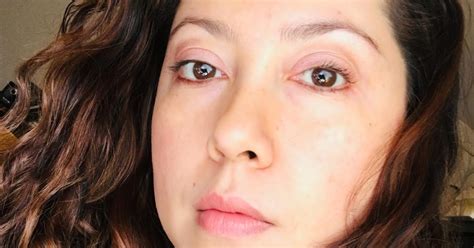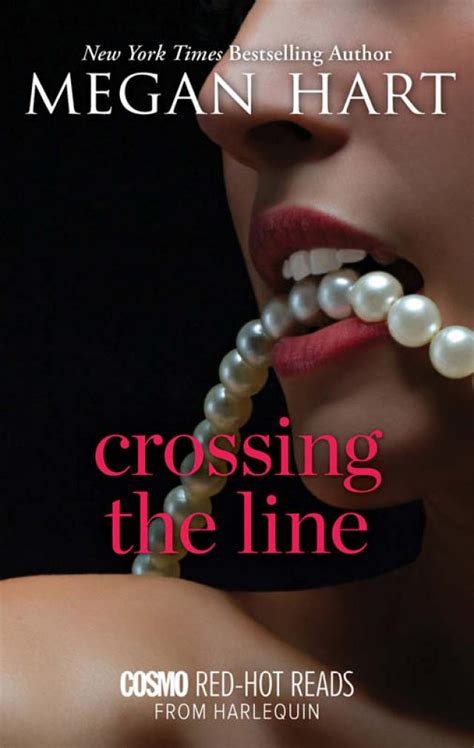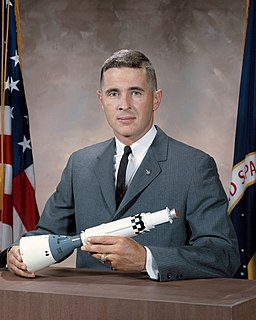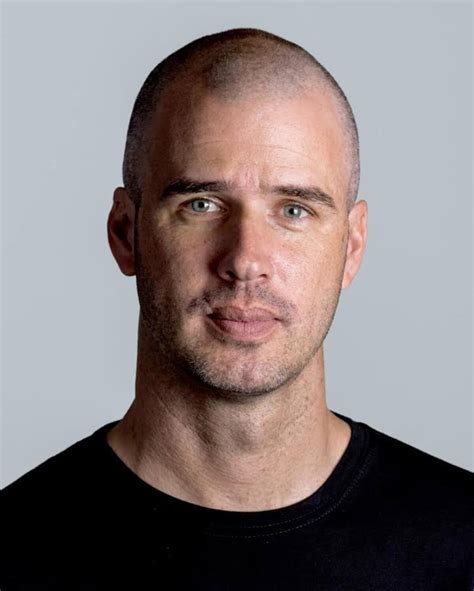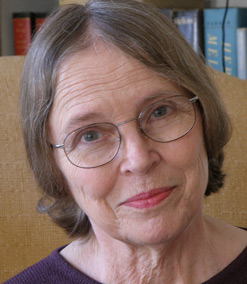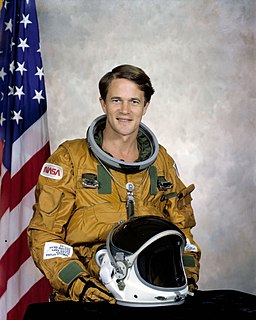Top 163 Sunsets Quotes & Sayings - Page 3
Explore popular Sunsets quotes.
Last updated on April 19, 2025.
Raw and delicate, poignant and poetic, Shelby Smoak’s Bleeder exposes the sorrow and sometimes sweetness of coming to age with HIV. In a world of misunderstanding and stigmas, the young Smoak searches for love and acceptance, and his readers can’t help but find themselves becoming emotionally attached to him. His is an observant and encompassing story, noticing the brilliance of existence that others might take for granted. The sunsets written here are more lovely than in life.
I wish this story were different. I wish it were more civilized. I wish it showed me in a better light, if not happier, than at least more active, less hesitant, less distracted by trivia. I wish it had more shape. I wish t were about love, or about sudden realizations important to one’s life, or even about sunsets, birds, rainstorms, or snow. I’m sorry there is so much pain in this story. I’m sorry it’s in fragments, like a body caught in crossfire or pulled apart by force. But there is nothing I can do to change it.
Why shouldn't it be that way for the rest of us? Why not just go with it? Just walk the dog and send the tweets and eat the scones and play with the hamsters and ride the bicycles and watch the sunsets and stream the movies and never worry about any of it? I didn't know it could be that easy. I didn't know that until just now. That sounds good to me.
Tolkien understood about the things that happen after the end. Because this is after the end, this is all the Scouring of the Shire, this is figuring out how to live in the time that wasn’t supposed to happen after the glorious last stand. I saved the world, or I think I did, and look, the world is still here, with sunsets and interlibrary loans. And it doesn’t care about me any more than the Shire cared about Frodo.
Nature and books belong to the eyes that see them. It depends on the mood of the man, whether he shall see the sunset or the fine poem. There are always sunsets, and there is always genius; but only a few hours so serene that we can relish nature or criticism. The more or less depends on structure or temperament. Temperament is the iron wire on which the beads are strung. Of what use is fortune or talent to a cold and defective store?
I've decided that if I had my life to live over again, I would not only climb more mountains, swim more rivers, and watch more sunsets; I wouldn't only jettison my hot water bottle, raincoat, umbrella, parachute, and raft; I would not only go barefoot earlier in the spring and stay out later in the fall; but I would devote not one more minute to monitoring my spiritual growth. No, not one.
And I learned what is obvious to a child. That life is simply a collection of little lives, each lived one day at a time. That each day should be spent finding beauty in flowers and poetry and talking to animals. That a day spent with dreaming and sunsets and refreshing breezes cannot be bettered. But most of all, I learned that life is about sitting on benches next to ancient creeks with my hand on her knee and sometimes, on good days, for falling in love.
In summer we live out of doors, and have only impulses and feelings, which are all for action, and must wait commonly for the stillness and longer nights of autumn and winter before any thought will subside; we are sensible that behind the rustling leaves, and the stacks of grain, and the bare clusters of the grape, there is the field of a wholly new life, which no man has lived; that even this earth was made for more mysterious and nobler inhabitants than men and women. In the hues of October sunsets, we see the portals to other mansions than those which we occupy.
God is not merely at your fingertips but within your grasp. Live each day like a child digging through an antique treasure chest rifling for the next discovery. Open your arms and your eyes to the God who stands in plain sight and works miracles in your midst. Look for him in your workdays and weekends, in your meeting-filled Mondays and your lazy Saturdays. Search for him in the snowy sunsets and Sabbaths, seasons of Lent and sitting at your table. Pray for—and expect—wonder. For when you search for God, you will discover him.
All this knowledge of the objective world is of no value in comparison to having a little glimpse of the inner sky and its beauty - its sunrises and sunsets, its days and nights, its blue sky and its stars. The outer then looks only a pale reflection of the inner. The inner becomes more real and the outer becomes just a shadow.
I've never really thought about it before, but it's a miracle how many kinds of light there are in the world, how many skies: the pale brightness of spring, when it feels like the hole world's blushing; the lush, bright boldness of a July noon; purple storm skies and a green queasiness just before lightning strikes and crazy multicolored sunsets that look like someone's acid trip.
Important days don't look like anything special when they start. Invariably, the sun rises and people wake up. Coffee is swilled and eggs are swallowed. Everybody goes about the business of acting like their lives matter and then, no matter how important the events of the day end up being, the sun invariably sets. The sun rose before the soldiers stormed Omaha Beach on D-Day, and the sun set after Archduke Franz Ferdinand was killed. Sunrises and sunsets are real jerks about putting things in perspective.
I have seen clouds part for the sun. I have seen rainbows. I have seen flowers in the morning, covered in dew, and I have seen sunsets so brilliant with fire they made me want to weep. And I have seen Dan smile at me, his lips still wet from my kiss, and if I had to choose which sight moved me the most I would say it was that one.
My family didn't go to church. Once when I slept over at the house of a friend, her parents brought me to Sunday school with her. I was given this little pamphlet of tiny poems about the natural world, about butterflies and sunsets. My 7-year-old self was so astounded by how these few words were creating pictures and feelings in me.
The place where I grew up is the center of surfing. Everyone who grows up on the North Shore surfs, and from October to March, you have the best waves in the world within a 5- to 7-mile stretch. I grew up in the center of these incredible sunsets and all these incredible waves. And then we have the Triple Crown of Surfing.
I think the thing that impressed me the most was the Lunar's sunrises and sunsets. These in particular bring out the stark nature of the terrain. . . . The horizon here is very, very stark, the sky is pitch black and the earth, or the moon rather, excuse me, is quite light, and the contrast between the sky and the moon is a vivid dark line.
While my chosen form of story-writing is obviously a special and perhaps a narrow one, it is none the less a persistent and permanent type of expression, as old as literature itself. There will always be a certain small percentage of persons who feel a burning curiosity about unknown outer space, and a burning desire to escape from the prison-house of the known and the real into those enchanted lands of incredible adventure and infinite possibilities which dreams open up to us, and which things like deep woods, fantastic urban towers, and flaming sunsets momentarily suggest.
If you say, Well, OK, I don't believe in God. There's no evidence of God, then you're missing the stars in the sky and you're missing the sunrises and sunsets and you're missing the fact that bees pollinate all these crops and keep us alive and the way that everything seems to work together. Everything is sort of built in a way that to me suggests intelligent design.
Your poems are rather hard to understand, whereas your paintings are so easy. Easy? Of course - you paint flowers and girls and sunsets; things that everybody understands. I never met him. Who? Everybody. Did you ever hear of nonrepresentational painting? I am. Pardon me? I am a painter, and painting is nonrepresentational. Not all painting. No: housepainting is representational. And what does a housepainter represent? Ten dollars an hour. In other words, you don't want to be serious - It takes two to be serious.
I remember a hundred lovely lakes, and recall the fragrant breath of pine and fir and cedar and poplar trees. The trail has strung upon it, as upon a thread of silk, opalescent dawns and saffron sunsets. It has given me blessed release from care and worry and the troubled thinking of our modern day. It has been a return to the primitive and the peaceful. Whenever the pressure of our complex city life thins my blood and benumbs my brain, I seek relief in the trail; and when I hear the coyote wailing to the yellow dawn, my cares fall from me - I am happy.
Suddenly it wasn't only a personal thing to me. I could picture hundreds and hundreds of boys living on the wrong sides of cities, boys with black eyes who jumped at their own shadows. Hundreds of boys who maybe watched sunsets and looked at stars and ached for something better. I could see boys going down under street lights because they were mean and tough and hated the world, and it was too late to tell them that there was still good in it, and they wouldn't believe you if you did.
It had nothing to do with gear or footwear or the backpacking fads or philosophies of any particular era or even with getting from point A to point B. It had to do with how it felt to be in the wild. With what it was like to walk for miles with no reason other than to witness the accumulation of trees and meadows, mountains and deserts, streams and rocks, rivers and grasses, sunrises and sunsets. The experience was powerful and fundamental. It seemed to me that it had always felt like this to be a human in the wild, and as long as the wild existed it would always feel this way.
Sometimes I think maybe they were right all along, the people on the other side in Zombieland. Maybe it would be better if we didn't love. If we didn't lose either. If we didn't get our hearts stomped on, shattered: if we didn't have to patch and repatch until we're like Frankenstein monsters, all sewn together and bound up by who knows what. If we could just float along, like snow. But how could anyone who's ever seen a summer - big explosions of green and skies lit up electric with splashy sunsets, a riot of flowers and wind that smells like honey - pick the snow?
I've been thinking about it, and that poem, that guy that wrote it, he meant you're gold when you're a kid, like green. When you're a kid everything's new, dawn. It's just when you get used to everything that it's day. Like the way you dig sunsets, Pony. That's gold. Keep that way, it's a good way to be.
This is my wish for you: Comfort on difficult days, smiles when sadness intrudes, rainbows to follow the clouds, laughter to kiss your lips, sunsets to warm your heart, hugs when spirits sag, beauty for your eyes to see, friendships to brighten your being, faith so that you can believe, confidence for when you doubt, courage to know yourself, patience to accept the truth, Love to complete your life.
Nothing grows among its pinnacles; there is no shade except under great toadstools of sandstone whose bases have been eaten to the shape of wine glasses by the wind. Everything is flaking, cracking, disintegrating, wearing away in the long, inperceptible weather of time. The ash of ancient volcanic outbursts still sterilizes its soil, and its colors in that waste are the colors that flame in the lonely sunsets on dead planets.
I think of the medium as a people-to-people medium, not cameraman-to-people, not direction-to-people, not writers-to-people, but people-to-peopleYou can only involve an audience with people. You can't involve them with gimmicks, with sunsets, with hand-held cameras, zoom shots, or anything else. They couldn't care less about those things. But you give them something to worry about, some person they can worry about, and care about, and you've got them, you've got them involved.
At the end of the day, no amount of investing, no amount of clean electrons, no amount of energy efficiency will save the natural world if we are not paying attention to it - if we are not paying attention to all the things that nature give us for free: clean air, clean water, breathtaking vistas, mountains for skiing, rivers for fishing, oceans for sailing, sunsets for poets, and landscapes for painters. What good is it to have wind-powered lights to brighten the night if you can't see anything green during the day? Just because we can't sell shares in nature doesn't mean it has no value.
By now you know: I come from another planet. But I will never say to you, "Take me to your leaders." Even I--unused to your ways though I am--would never make that mistake. We ourselves have such beings among us, made of cogs, pieces of paper, small disks of shiny metal, scraps of coloured cloth. I do not need to encounter more of them. Instead I will say, "Take me to your trees. Take me to your breakfasts, your sunsets, your bad dreams, your shoes, your nouns. Take me to your fingers; take me to your deaths." These are worth it. These are what I have come for.
I have now seen sucrose beaches and water a very bright blue. I have seen an all-red leisure suit with flared lapels. I have smelled suntan lotion spread over 2,100 pounds of hot flesh. I have been addressed as "Mon" in three different nations. I have seen 500 upscale Americans dance the Electric Slide. I have seen sunsets that looked computer-enhanced. I have (very briefly) joined a conga line.
Please do not leave me, he thought. He could not bear a world without Alli. He realized how much he relied on her from morning until night. She was his only conversation. His only smile. She prepared their meager food and always offered it to him first, even though he insisted she eat before he did. THey leaned on each other at sunsets. Holding her as they slept felt like his last connection to humanity.
Even though it was January, in Los Angeles it was beautiful and sunny and the blue skies were out and it was hot everyday, so I think it was just a product of our environment. And California to me as a concept or as an idea always seems like endless optimism and endless opportunity - when people think of California they think of palm trees and blue skies and gorgeous sunsets and beaches and everything else. But there's also this weirdness to California, this darkness, it's a place where people come to follow their dreams and sometimes don't make it.
The first week of August hangs at the very top of summer, the top of the live-long year, like the highest seat of a Ferris wheel when it pauses in its turning. The weeks that come before are only a climb from balmy spring, and those that follow a drop to the chill of autumn, but the first week of August is motionless, and hot. It is curiously silent, too, with blank white dawns and glaring noons, and sunsets smeared with too much color.
When we live without listening to the timing of things, when we live and work in twenty-four-hour shifts without rest – we are on war time, mobilized for battle. Yes, we are strong and capable people, we can work without stopping, faster and faster, electric lights making artificial day so the whole machine can labor without ceasing. But remember: No living thing lives like this. There are greater rhythms, seasons and hormonal cycles and sunsets and moonrises and great movements of seas and stars. We are part of the creation story, subject to all its laws and rhythms.
The sun truly "comes up like thunder," and it sets just as fast. Each sunrise and sunset lasts only a few seconds. But in that time you see at least eight different bands of color come and go, from a brilliant red to the brightest and deepest blue. And you see sixteen sunrises and sixteen sunsets every day you're in space. No sunrise or sunset is ever the same.
What deep and worthy love is so, whether of woman or child, or art or music. Our caresses, our tender words, our still rapture under the influence of autumn sunsets, or pillared vistas, or calm majestic statues, or Beethoven symphonies all bring with them the consciousness that they are mere waves and ripples in an unfathomable ocean of love and beauty; our emotion in its keenest moment passes from expression into silence, our love at its highest flood rushes beyond its object and loses itself in the sense of divine mystery.
I hated the mountains and the hills, the rivers and the rain. I hated the sunsets of whatever colour, I hated its beauty and its magic and the secret I would never know. I hated its indifference and the cruelty which was part of its loveliness. Above all I hated her. For she belonged to the magic and the loveliness. She had left me thirsty and all my life would be thirst and longing for what I had lost before I found it.
I want to do the right thing, but often I don't know just what the right thing is. Every day I know I have come short of what I would like to have done. Yet as the years pass and I see the very world itself, with its oceans and mountains and plains, as something unfinished, a peculiar little satisfaction hunts out the corners of my heart. Sunsets and evening shadows find me regretful at task's undone, but sleep and the dawn and the air of the morning touch me with freshening hopes. Strange things blow in through my window on the wings of the night wind and I don't worry about my destiny.
Sunsets are loved because they vanish. Flowers are loved because they go. The dogs of the field and the cats of the kitchen are loved because soon they must depart. These are not the sole reasons, but at the heart of morning welcomes and afternoon laughters is the promise of farewell. In the gray muzzle of an old dog we see goodbye. In the tired face of an old friend we read long journeys beyond returns.

